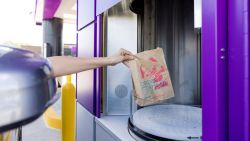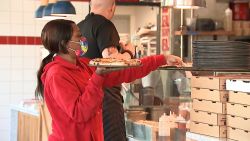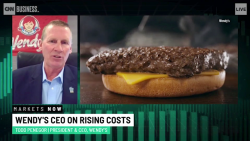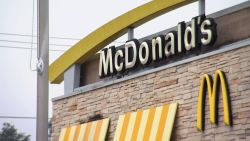The pandemic helped revive an old-fashioned meal category: the frozen dinner. Now Kraft is betting big that it can convince customers to keep picking this option.
On Wednesday, Kraft Heinz officially introduced Homebake 425°/:30, the company’s new line of frozen meals. The line has 15 items: five mains, five starchy sides, and five vegetables. Each needs to be cooked in the oven for 30 minutes on 425-degree heat. The idea is that you can mix and match the sides, throw them all in the oven (they are not microwavable) at once, and be ready to eat in just half an hour.
Homebake items are already available at retailers like Kroger and Walmart in the Midwest. It will expand this spring and summer, and by the end of the year, Homebake should be available in 5,000 stores, according to the company. Mains retail for $12.99, while sides and veggies go for $7.99 each. Each box contains about four servings.
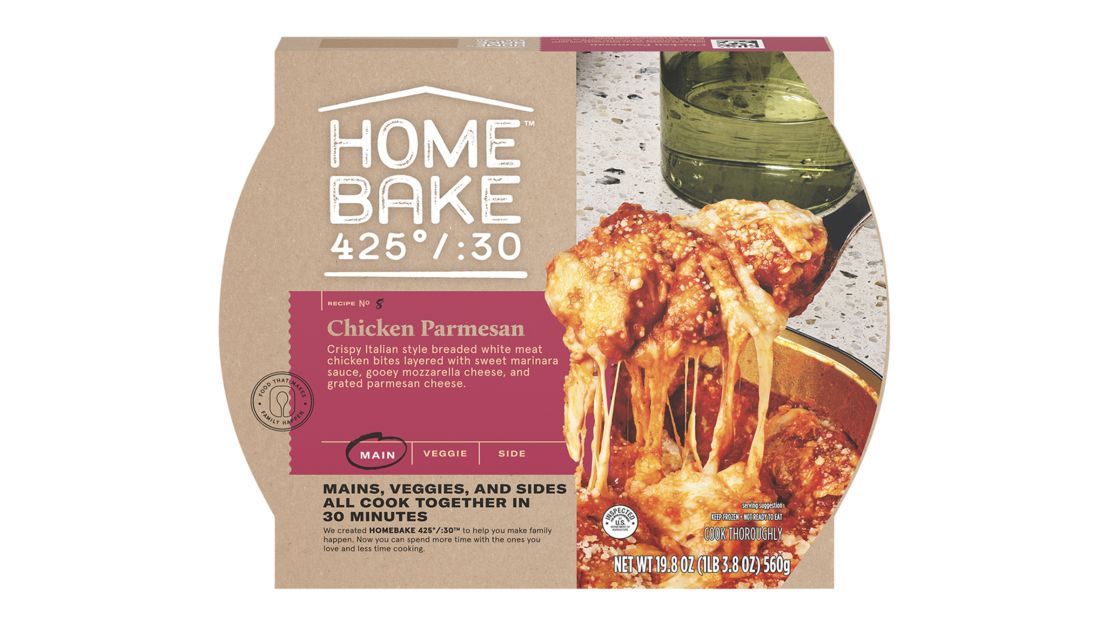
For Kraft, the new brand is part of an effort to increase the company’s net sales by $2 billion through 2027. It follows the food company’s strategy of leaning into comfort and convenience over healthy options, even as competitors focus on health. As part of its earlier turnaround efforts, Kraft Heinz has been trying to reinvigorate decades-old brands like Velveeta and Oscar Mayer.
“US Retail is a must-win for us,” Carlos Abrams-Rivera, president of the company’s North America business, said in a statement announcing the sales growth plan in February. “We’ve breathed new life into our brands through renovation, and we must now innovate to meet future needs of consumers.”
Kraft thinks it can expand the market with classic comforts that customers could make at home, but don’t want to.
Comfort food, fast
The trick is to model meals after comfort foods you could make at home, if you had the time. But if the meals are too easy to make, customers will just prepare them from scratch rather than from a box.
Kraft Heinz (KHC) learned that lesson during a market test. One item, a honey BBQ chicken, got great reviews. But when Kraft launched it in a test market, it stayed on the freezer shelf. Consumers said they didn’t need it.
“‘I can take some chicken breasts, I can pour some barbecue sauce on it, stick it in the oven. That’s easy,’” customers said, according to Alan Kleinerman, VP of disruptive innovation at the Kraft Heinz Company. “It didn’t have that value-add,” he told CNN.
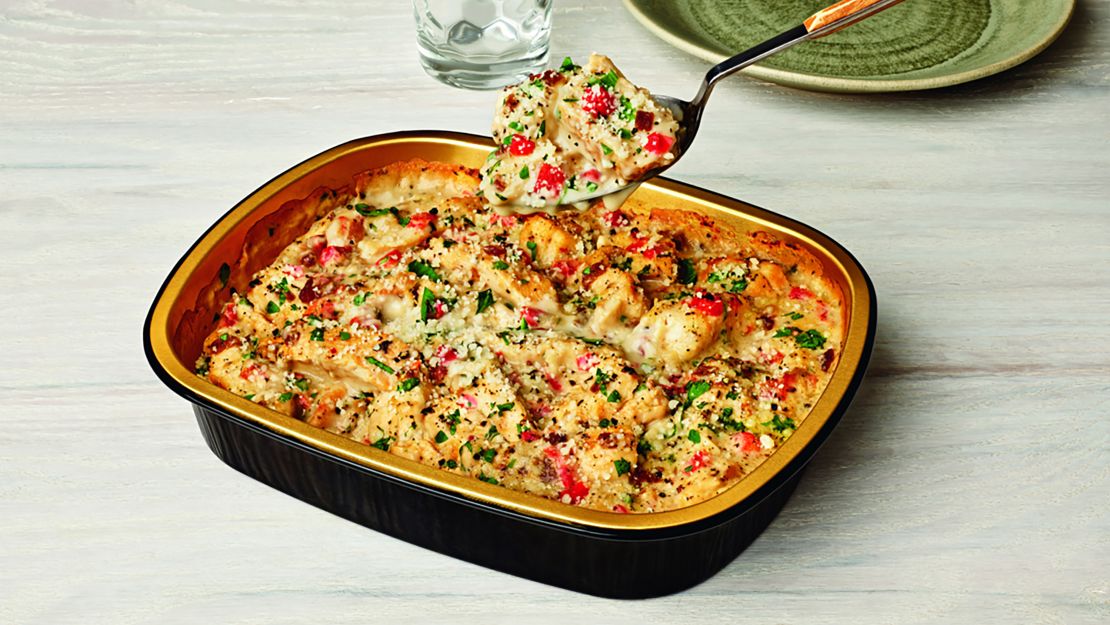
For Kraft, “that was a really important insight,” he added. “If it was super simple to make, even if it was delicious, it wasn’t solving the problem that Homebake was there to solve.” When Kraft replaced the barbecue chicken, it brought on a garlic butter chicken scampi, which remains in the portfolio and “has many steps and different ingredients,” said Kleinerman.
The frozen offerings could also enable Kraft to steal some market share from meal kit and delivery services, which have become competitors to packaged food makers as people looked for new ways to eat at home.
There’s good reason to go big on frozen for its next act. Even as unit sales have slipped, high prices have led to a 9.3% sales jump for frozen meals in US retail in the year through April 23, according to data from Circana, which tracks sales and was previously known as IRI and NPD. In that time, frozen food prices jumped 16.3%, well above recent annual trends for grocery prices as a whole.
With Homebake, however, Kraft will have to win people over even as it bucks certain trends.
Not a ‘health-forward’ meal
In recent years in the frozen meals category, there’s been a “move beyond traditional comfort food … [to] cuisine exploration, global flavors, and much more variety than there once was,” said John Owen, associate director of Food and Drink at Mintel, a market research firm.
Additionally, “a lot of what both old and new competitors have been doing is trying to kind of counteract that traditional view of this as an unhealthy, over-processed category.”
Still, he said, “at its heart, it’s about convenience.”
The Homebake lineup includes pulled pork with barbecue sauce, meatballs, green bean casserole and scalloped potatoes — nothing particularly healthy. Many of the items are loaded with cheese.
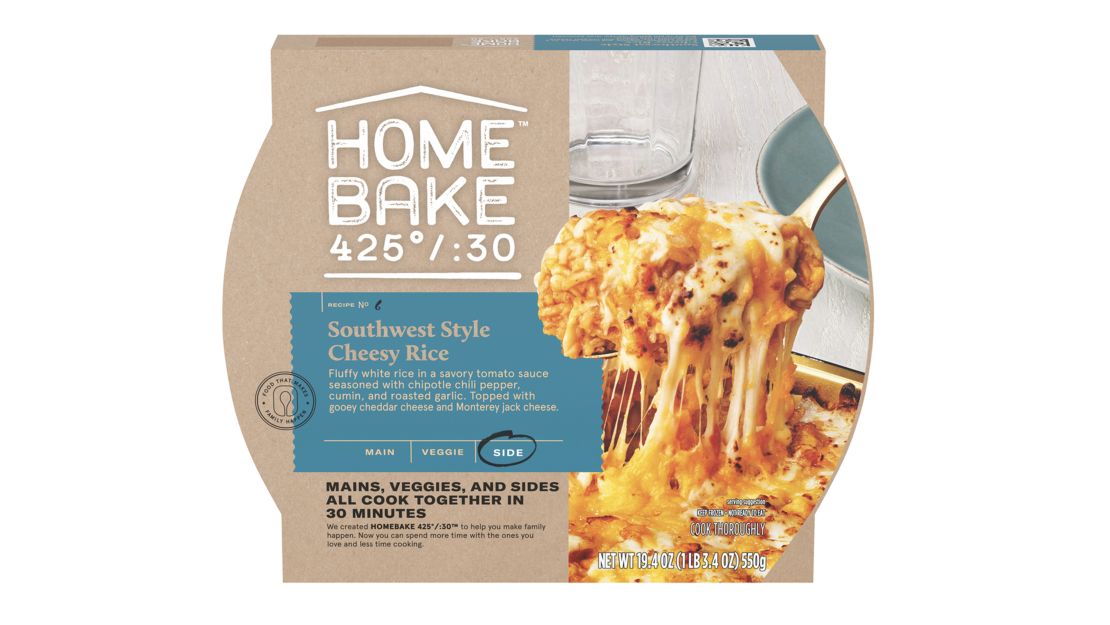
“For this consumer, taste really is number one, with convenience being number two,” said Kleinerman. “I wouldn’t call this a dish that is health-forward by any means, it’s a taste-forward dish.” But, he said, the brand is still focused on “high-quality” ingredients, and he thinks people could eat the food on a regular basis.
The Homebake strategy aligns with Kraft’s overall approach to growing sales without worrying too much about offering products perceived as healthy.
In 2020, Kraft Heinz announced that it was divesting its natural cheese business. The following year, it said the same of Planters, saying goodbye to the iconic Mr. Peanut. Since then, the company has focused its energy on its classic, highly-processed items like Velveeta, Lunchables and Kraft Mac and Cheese.
Starting from scratch
But those items have lots of brand equity — people may not love them, but they know what they are.
With Homebake, Kraft is starting from scratch. It will have to find ways to tell customers that there’s something different in the frozen aisle, Mintel’s Owen said.
“Not everybody goes down the aisle and looks for the category, and not everybody uses it,” he said. Kraft will have to reach people before they even get to the store.
To make sure people know about Homebake, the company is advertising with commercials, social media and partnerships with influencers. In stores, it’s offering coupons and samples.
Sally Lyons Wyatt, EVP of client Insights at Circana, noted that marketing is especially important for frozen comfort foods.
“If they can get the consumer to try it, and they love it, then they’ll come back. But the proposition has to be one that’s unique and different,” she said. “At the end of the day, if you don’t engage … [you’re] not going to do as well.”






